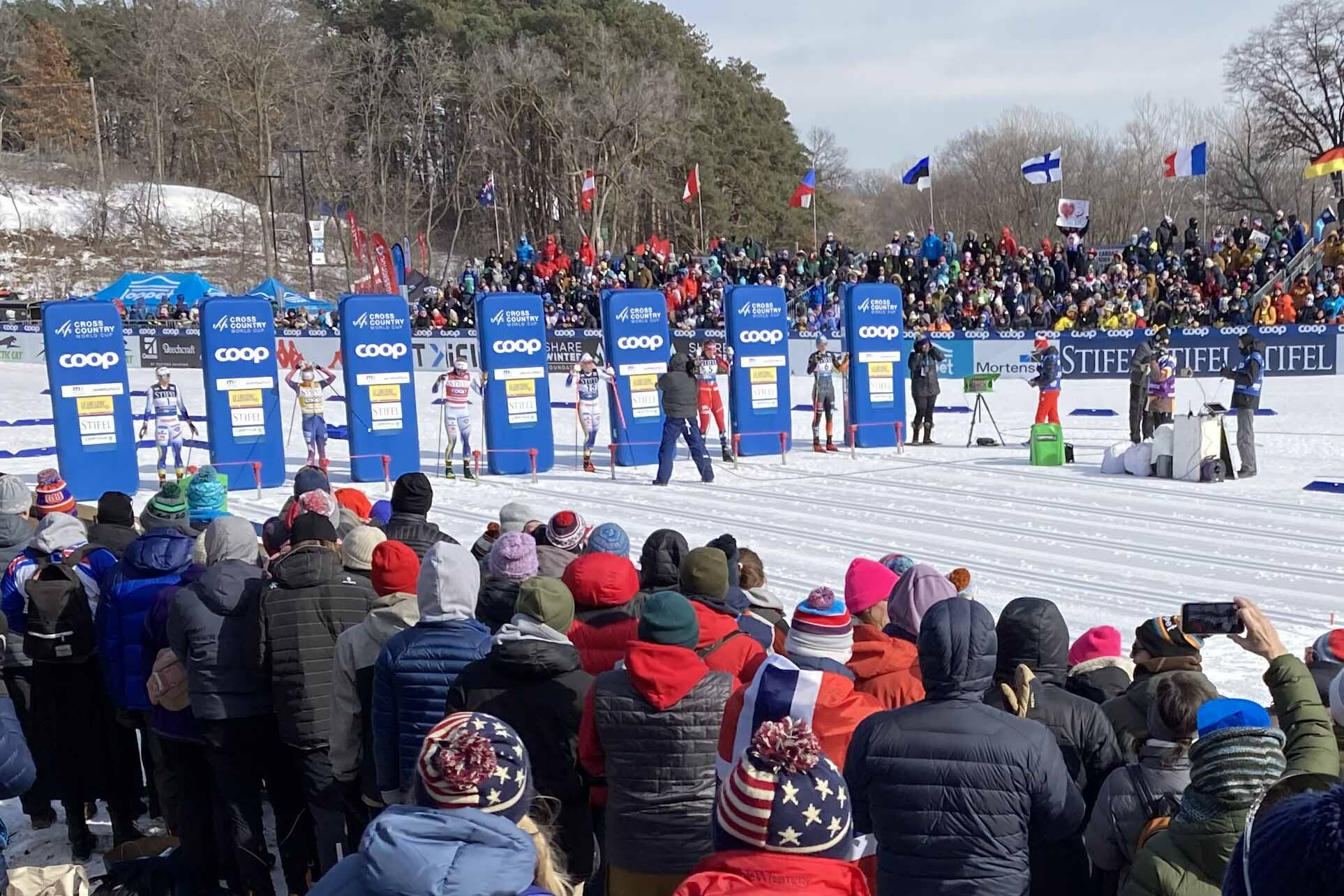Sometimes I forget how I got to be this way.
That point was driven home by a few trips to the Midwest this winter.
The first was in February for the World Cup cross-country ski races in Minneapolis and the American Birkebeiner in northern Wisconsin.
The back-to-back weekends were an obvious fit for those who love cross-country skiing.
I’ve skied Tsalteshi Trails for over 25 years. I’d run into Alan Boraas many times on the trails until his death in 2019, and each time he seemed to have a story or thought that made me love the sport even more.
In the summer of 2017, I’d also had the fortune to do a story on Andy Liebner doing a summer clinic for a group of high school skiers. Liebner is a 2001 Soldotna High School graduate who went on to coach cross-country skiing in the Olympics.
The event led to my fascination with ski technique and watching a shameful amount of YouTube videos on the topic.
The World Cup was back on United States snow for the first time since 2001 and I had to see what the world’s best looked like in person, particularly the majestically smooth Johannes Hoesflot Klaebo.
The following weekend, I completed my fourth Birkie on the 50th anniversary of the event. It was a Birkie unlike any other — shortened to three laps of a 10K loop entirely on manmade ribbons of snow through the glacier-carved hills of northern Wisconsin.
“Don’t forget,” my dad said as he dropped me off at the Minneapolis airport to finish the whirlwind but worth-it trip, “I’m the one you have to blame for getting you into skiing.”
My dad had me on skis as long as I could remember. In 1991, when I was a sophomore in high school, he did his first Birkebeiner at the age of 42. I tagged along and did the Kortelopet, a ski race about half the length of the 50-kilometer Birkie.
While raising four kids and practicing internal medicine, my father went on to do 14 Birkebeiners despite losing three years to bad breaks — a ski, an ankle and a race cancellation due to rain.
Racing 50 kilometers on skis does not happen without a hours of sacrifice and dedication in the months leading up to the event, something I’ve come to call “the tyranny of the 50K.”
Without the constant exposure of my dad readying for the largest ski race in North America, I would not have been as drawn to Tsalteshi, Boraas and Liebner in Alaska.
My dad was, indeed, to blame.
The second trip to the Midwest was to Milwaukee in mid-April for the funeral of my grandmother, who had died at 98.
My brother centered his remarks of remembrance about the end of Winnie the Pooh, when Christopher Robin has to grow up and go to school, leaving the world of play and imagination behind.
Whether it was dancing, playing the piano, jigsaw puzzles, card games or travel — all done into her 90s — my brother said my grandmother was always a joy to be around because she never left the world of play and imagination behind.
I also try to not leave the world of play and imagination behind. But I’d attributed that to a book I’d read in my late 30s: “Play: How it shapes the brain, opens the imagination, and invigorates the soul,” by Stuart Brown.
But there I was with my cousin, nieces, nephews, brothers and sister the day after my grandma’s funeral, playing a game of hearts (I won) followed by a game of kickball (I popped something in my adductor, as did my brother and sister).
My family did not play the day after my grandmother’s funeral to honor her. We played because that’s what we do.
I did not continue to play solely due to Stuart Brown. That book caught my eye due to my grandmother, and she’s the reason I’m so open to its message.
My grandmother was, indeed, to blame.
How could I have forgotten the massive role my dad played in my love for skiing, or the similar role of my grandmother in my determination to remain in a world of play and imagination?
My brother closed his remarks with an alternate ending to the Pooh story written in a writing prompt section of Reddit.
In this version, Christopher Robin is surrounded by Pooh and his friends as Robin prepares to leave the Hundred Acre Wood. Robin lets the group in on a secret as they huddle underneath a tree: “Memories. Are. Forever.”
Except as I get older, I don’t think memories are forever. When I have to page through old issues of the Clarion, there’s too many stories I never even remember having written. There’s too many stories from my childhood recalled entirely different by friends or family.
What I do think is forever is the desire of our powerful and agile brains to take our core beliefs and expectations, set by those we hold dearest, and expand and mold them with new experiences in a constant quest for discovery.
“Sometimes, good things come to an end,” Robin says.
And sometimes, they don’t.


